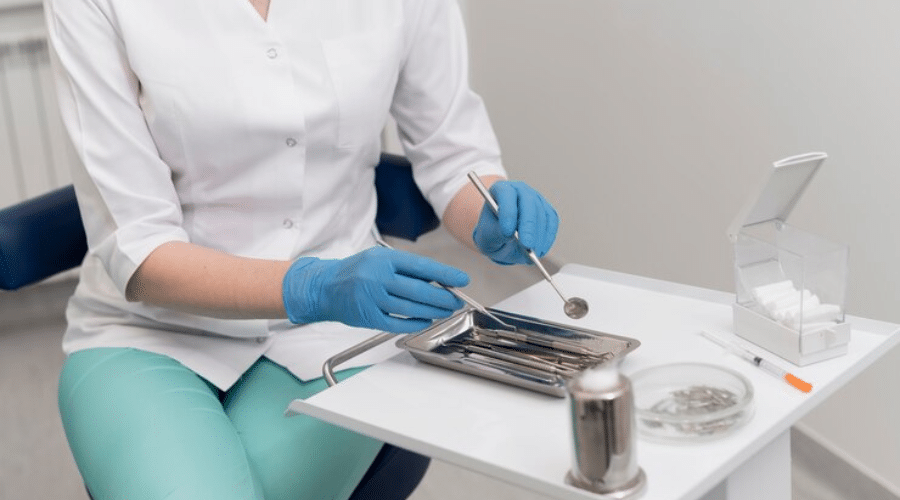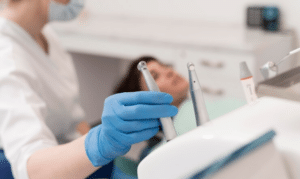When it comes to modern dentistry, understanding the biocompatibility test for dental materials is not just a choice but a necessity. This crucial examination is the cornerstone of biological dentistry, where the focus shifts from mere procedures to prioritizing the intricate relationship between dental materials and the human body.
This blog unravels the significance of the Biocompatibility Test, exploring its various testing methods that contribute to the overarching goal of promoting overall well-being in dental care. Join us on a journey through the science behind this pivotal test and discover why it has become an indispensable element in shaping the future of dental practices.
Should Dental Materials Be Biocompatible?
Biocompatible materials used in various dental procedures ensure optimal oral health. Biocompatibility means that the materials used in dental procedures harmonize with the body’s natural processes, minimizing the risk of adverse reactions. This is especially crucial in biological dentistry, where the focus is on overall well-being.
Biocompatible materials reduce the chances of allergies, sensitivities, and other complications. They promote a symbiotic relationship between dental interventions and the body, fostering a healthier, more personalized approach to oral care. Embracing biocompatibility is not just a trend; it’s a commitment to patient-centric dentistry, prioritizing health, and enhancing treatment precision.
Let’s discuss a few popular tests followed by dentists while selecting biocompatible materials for dental work.
Agar Diffusion Test: A Comprehensive Evaluation
Biological dentistry employs the agar diffusion test to assess how dental materials interact with living tissues. This in-vitro test acts as a scientific sentinel, allowing dentists to foresee how dental materials may interact with living tissues. By simulating real-world conditions, the Agar Diffusion Test gauges the potential release of substances, providing critical insights into the biocompatibility of materials.
This method ensures that dental choices extend beyond functionality to prioritize patient health. Like a precise compass guiding dental practitioners, the Agar Diffusion Test empowers them to make informed decisions, steering away from potential risks and toward materials that resonate harmoniously with the intricate ecosystem of the human body. As biological dentistry evolves, this test remains an essential tool, embodying a commitment to proactive and personalized patient care.
“Biocompatibility is de¢ned as the ability of a material to function in a speci¢c application in the presence of an appropriate host response.”
–Hauman, C. H. J., & Love, R. M. (2003). Biocompatibility of dental materials used in contemporary endodontic therapy: a review. Part 1. Intracanal drugs and substances. International endodontic journal, 36(2), 75-85.
Filter Diffusion Testing Methods: Navigating Material Compatibility
The assessment of material compatibility takes a significant leap forward with filter diffusion testing methods. Imagine it as a meticulous navigation system guiding your dentist through the intricate landscape of dental materials. These methods delve into how substances move through materials, providing dynamic insights into potential interactions with bodily fluids. This isn’t just about functionality; it’s about ensuring that the chosen materials seamlessly integrate with the body’s delicate ecosystem.
By adopting filter diffusion testing, biological dentistry not only embraces innovation but also empowers dentists to make informed decisions, selecting materials that not only perform optimally but do so in harmony with the natural environment within the oral cavity. It’s a proactive step towards ensuring dental materials don’t just work well—they work harmoniously with the intricate biology of each patient.
Dentin Barrier Testing: Simulating Real-World Conditions
This test emerges as a key player, simulating real-world conditions to ensure materials seamlessly integrate with the natural dental environment. The dentin barrier testing method involves subjecting dental materials to conditions mimicking the intricate structure of teeth, from the enamel to the underlying dentin.
During this test, the goal is not just to examine the material’s performance but to understand its impact on the tooth’s integrity. The test involves evaluating how dental materials interact with the dentin – the core structure beneath the enamel. This simulation enables dentists to foresee potential issues, ensuring that chosen materials not only function effectively but also contribute to the long-term health of the tooth.
Incorporating dentin barrier testing into the biocompatibility assessment reflects a commitment to dental care that extends beyond immediate results, aiming for solutions that stand the test of time within the complex and dynamic environment of the oral cavity.
Selective Kinesiology: Aligning Materials with Individual Physiology
Selective Kinesiology emerges as a cutting-edge method, offering a personalized touch to the selection of dental materials. Unlike standardized approaches, this holistic testing method taps into the body’s innate wisdom. Through muscle response evaluation, dentists gain unique insights into an individual’s physiological compatibility with various dental materials.
Patients become active participants in their treatment, as the subtle shifts in muscle strength indicate the body’s preference or aversion. This dynamic interaction allows for a tailored approach, ensuring that the chosen materials seamlessly integrate with the patient’s unique physiology. Selective Kinesiology not only enhances the precision of dental solutions but also exemplifies biological dentistry’s commitment to patient-centric care, where every treatment is as unique as the individual it serves.
Materials Reactivity Testing: Tailoring Dental Solutions
In biological dentistry, materials reactivity tests emerge as a bespoke approach to dental care. This advanced testing method dives deep into understanding how a patient’s blood uniquely reacts to different dental materials. It’s not a one-size-fits-all scenario; instead, it’s a personalized evaluation that considers individual physiology.
The process involves exposing a small sample of a patient’s blood to various dental materials. By observing the blood’s reaction, dentists gain valuable insights into which materials resonate positively with the patient’s biological makeup. This personalized touch goes beyond the conventional trial-and-error approach, minimizing the risk of allergic reactions or sensitivities.
Materials reactivity testing is not just about compatibility; it’s about tailoring dental solutions to align seamlessly with an individual’s unique physiology. This proactive strategy allows dentists to curate treatment plans that prioritize both oral health and overall well-being. By incorporating this testing method, holistic dentistry takes a significant leap towards patient-centric care, ensuring that every dental solution is not only effective but also harmonious with the intricate symphony of an individual’s biological composition. It’s a paradigm shift where dentistry becomes not just a science but a personalized art, enhancing precision and consideration in every step of the patient’s dental journey.
The biocompatibility test for dental materials stands as a pivotal factor in elevating dental care standards. From agar diffusion tests providing a comprehensive evaluation to dentin barrier testing simulating real-world conditions, each method contributes to a patient-centric approach.
Embracing selective kinesiology and materials reactivity testing ensures that dental solutions align with individual physiology. This comprehensive integration of biocompatibility testing not only assures the functionality of dental materials but prioritizes the overall health and well-being of every patient. In the evolving landscape of dental care, biological dentistry’s commitment to biocompatibility heralds a new era of personalized and health-conscious treatment.


